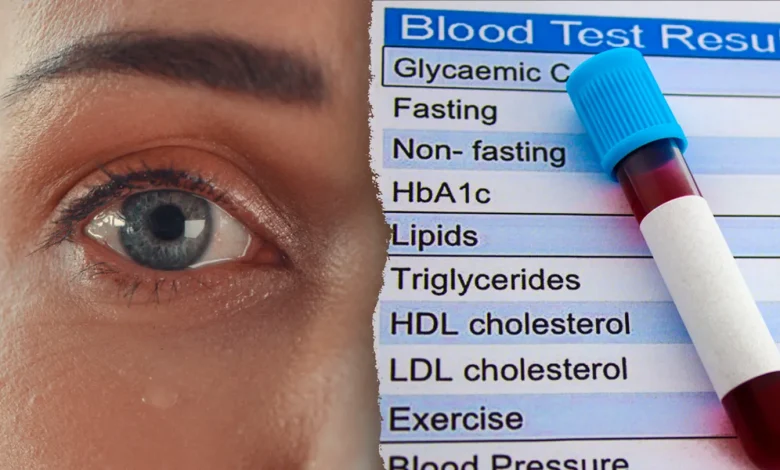Dementia has 2 shocking new risk factors, study finds, with total of 14 now on list

A recent study identified two unexpected additional risk factors for Alzheimer’s disease.
High levels of LDL cholesterol and untreated vision loss have been associated with an increased risk of acquiring the common kind of dementia.
When present in excessive numbers, low-density lipoprotein (LDL), frequently referred to as “bad cholesterol,” is linked to adverse health outcomes.
The study, which was led by researchers from University College London, was released on August 10 in The Lancet.
Additionally, the results were presented on July 31 in Philadelphia at the Alzheimer’s Association International Conference (AAIC).
Alongside the 12 other risk factors the researchers originally identified in 2020, vision loss and high LDL cholesterol are now included in the list.
A traumatic brain injury, poor levels of education, smoking, high blood pressure, obesity, physical inactivity, depression, diabetes, excessive alcohol use, air pollution, and social isolation are the twelve.
The researchers looked through hundreds of recent papers on high cholesterol and eyesight loss to determine the two additional risk variables.
According to the researchers, the 14 factors together account for about half of dementia cases worldwide, therefore removing them may be able to avoid many cases.
“Although many dementia risk factors need to be addressed on a societal level, some, like alcohol consumption and physical exercise, can be managed by changing your lifestyle,” stated Fiona Carragher, chief policy and research officer of the Alzheimer’s Society in the U.K. in a press release.
“Social isolation, education inequalities and air pollution are beyond individuals’ control and require public health interventions and joint action between government and industry.”
Although not directly engaged in the study, board-certified neurologist Dr. Earnest Lee Murray of Jackson, Tennessee’s Jackson-Madison County General Hospital stated that it “substantiates a lot of things we have known about dementia for several years.”
He stated on Fox News Digital, “The study in Lancet shows higher levels of LDL (the bad cholesterol) — which is often related to diet and lifestyle choices — is related to a greater chance of developing a dementia process.”
“Genetic factors can play a role in elevated levels of LDL — however, even in these patients, diet modifications can be beneficial as well.”
The doctor was similarly unsurprised by the connection between dementia progression and eyesight loss.
“We have known for years that patients who have higher levels of education and are ‘well-read’ often develop dementia at a much later age,” Murray stated.
“We rely heavily upon eyesight to be able to engage in our surroundings as well as stimulate cognitive thought.”
Lowering the danger
According to Murray, he frequently answers questions in his practice regarding how to lower or avoid the chance of getting dementia in later life.
He told Fox News Digital, “Patients have a good understanding of what a heart-healthy diet and lifestyle look like.”
The physician noted that the brain is a “very vascular organ,” indicating a close connection between the brain and the heart.
“I tell patients all the time, ‘If it’s healthy for the heart, it’s healthy for the brain,’” Murray stated.
“This not only includes dietary changes, such as lower fat/lower cholesterol diets, but also lifestyle modifications, such as smoking and alcohol cessation.”
Murray pointed out that there is proof that the Mediterranean diet can help postpone the onset of dementia.
“Regular exercise is beneficial from a vascular standpoint, and can also help from a mental standpoint,” he stated.
According to Murray, engaging in intellectually challenging activities is also known to postpone the probable start of dementia.
“I tell my patients to find some cognitively challenging activity they enjoy, whether that’s working puzzles or reading challenging books,” he stated.
“These activities can maintain a higher level of cognitive abilities and retard the onset of dementia.”
The U.S. Centers for Disease Control and Prevention (CDC) advise using protective eyewear in high-risk situations, wearing sunglasses to shield oneself from UV radiation, and scheduling routine eye exams to avoid vision loss.
The organization also stated that you can prevent vision loss by not smoking, eating a diet high in fruits and vegetables, keeping your blood sugar levels in check, and being aware of your family’s history of eye health issues.




